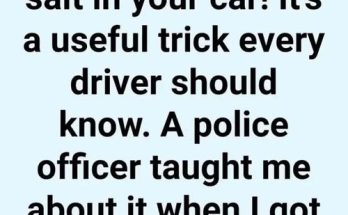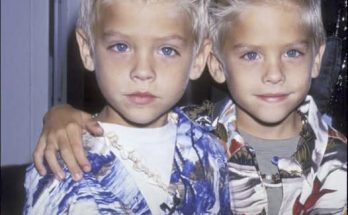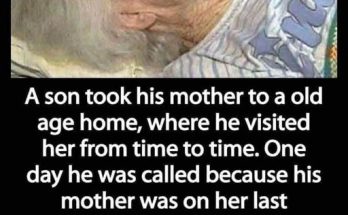Eleanor Whitmore had once been a name whispered with reverence in political circles and boardrooms alike.
A formidable woman with silver hair always pinned into a perfect chignon, she never arrived anywhere without purpose. Her navy suit was custom-tailored, her heels polished to a mirror’s shine. She didn’t just command respect—she had built legacies from it.
But power does not shelter the heart from grief.
And for the past year, Eleanor had lived quietly behind the gates of the Whitmore estate, away from cameras, condolences, and the pity of social elites. Her only son, Jonathan Whitmore, had died suddenly the year before in a tragic accident. His funeral had been private, attended only by immediate family. Even her tears had been silent.
So when the anniversary of his death arrived, Eleanor came alone to his resting place—without entourage, without press.
Just her, the wind… and guilt.
An Unexpected Mourner
The Whitmore family cemetery, nestled beneath tall oaks on their ancestral land, had been trimmed to perfection. Even the sorrow there looked dignified.
As Eleanor walked the gravel path, past the marble headstones etched with names of judges, senators, and titans of industry, she stopped suddenly.
There, kneeling at Jonathan’s grave, was a young Black woman.
She wore a worn-out waitress uniform, her apron wrinkled, her posture trembling. Cradled in her arms was a small infant, no older than a few months, swaddled in a blanket that had seen better days.
Eleanor’s steps froze.
The woman hadn’t noticed her yet. She was speaking softly to the headstone.
“I wish you could hold him. I wish he could hear your laugh.”
Eleanor’s voice broke the quiet like ice. “What are you doing here?”
The woman turned, startled—but her eyes were steady.
“I—I’m sorry,” she said, voice quivering. “I didn’t mean any disrespect.”
Eleanor stepped forward, her presence unmistakable. “You shouldn’t be here. Who are you?”
The woman slowly rose, holding the baby close.
“My name is Maya,” she said. “I knew Jonathan.”
“This Is His Son”
“Knew him how?” Eleanor asked coldly. “Were you… staff? From one of the foundations?”
Maya’s lips parted, and her voice softened.
“No,” she said. “It was more than that.”
She looked down at the child in her arms. “This is his son.”
Eleanor recoiled as if struck.
“You’re lying.”
“I’m not.”
Maya’s voice held pain, but also something deeper—truth.
“We met at the Bayside Diner. I served him coffee one night. He came back. Again and again. We… fell in love.”
Eleanor’s expression hardened. “That’s impossible. Jonathan would never—”
“—Love someone like me?” Maya interrupted gently. “I understand why you’d think that.”
Eleanor’s jaw clenched. “He would never keep something like this from me.”
“He tried to tell you,” Maya said quietly. “He was afraid. He didn’t think you’d approve.”
Tears welled in her eyes—but she stood firm.
“He wanted to build a life with me. He told me so. And then… the accident happened. I never got to say goodbye.”
The Eyes That Told the Truth
The baby stirred in Maya’s arms.
Eleanor, against her will, looked closer.
And in that moment, the breath left her.
The child’s eyes—stormy blue-gray, familiar and unmistakable—stared back at her.
Her son’s eyes.
Her knees weakened.
Jonathan’s gaze… in this tiny, fragile face.
Everything inside her fought against it. The carefully controlled image she had of her son—his career, his refinement, his place in society—was cracking.
But deep down, she knew.
This was real.
A Son Eleanor Never Really Knew
One year earlier, Jonathan Whitmore had been a man quietly resisting the mold he’d been cast into. Though born into privilege, he craved simplicity. He read Rumi. He volunteered anonymously. And when the world wasn’t watching, he’d slip into roadside diners, order coffee, and disappear into his journal.
That’s where he met Maya.
She challenged him. Saw him. Loved him not for his last name—but for the man he was underneath it all.
He never told Eleanor.
Not out of shame, but fear.
She would never understand.
Then came the rainy night. The accident. And silence.
Maya learned she was pregnant just days after the funeral.
She had grieved alone.
“I’m Not Here for Money”
Back in the present, Eleanor stood frozen.
Maya adjusted the baby in her arms and spoke softly.
“I’m not here for money. Or a fight. I just… wanted him to meet his father. Even like this.”
She reached into her pocket and pulled out a small baby rattle. She placed it gently beside the grave.
Then she turned and began to walk away.
Eleanor said nothing.
Not a word.
But her mind was unraveling.
On the gravestone, the words were engraved:
Jonathan Ellis Whitmore
Cherished Son. Visionary. Gone Too Soon.
Cherished son, she thought bitterly.
But had she truly cherished the man her son had become? Or just the version she wanted him to be?
The Photograph and the Fire
That evening, the Whitmore estate felt colder than ever.
Eleanor sat in her grand parlor, staring into the fireplace, its glow offering no comfort.
Beside her on the coffee table sat two things:
A tiny rattle.
And a photograph.
Maya had left it behind. It showed Jonathan, arms around Maya in a little diner booth, his face lit up with laughter Eleanor hadn’t seen since he was a boy.
He looked… free.
Happy.
Real.
Her eyes moved to the child in the photo. Again, those eyes. Jonathan’s eyes.
She whispered aloud, “Why didn’t you tell me?”
But she already knew the answer.
Because she wouldn’t have listened.
A Second Chance
Two days later, in the middle of a weekday lunch rush, the door to the Bayside Diner swung open.
Maya looked up and nearly dropped the tray in her hands.
Eleanor Whitmore stood at the threshold, cloaked in black, her posture perfect—but her expression uncertain.
The diner fell silent.
Eleanor walked directly to Maya.
“We need to talk,” she said.
Maya’s voice shook. “Are you here to… take him?”
“No.”
Her voice softened.
“I came to say I’m sorry.”
Every head turned. Even the coffee machine stopped hissing.
Eleanor continued.
“I judged you. I made assumptions. And because of that, I’ve lost a year with my grandson. I don’t want to lose another.”
She slid an envelope onto the table.
“It’s not money. Just my number. And an invitation. If you’re willing… I’d like to be part of your lives.”
Maya hesitated. “He deserves to know where he comes from. But I won’t let him be a secret or a shame.”
Eleanor nodded, eyes misty. “Then we begin with truth. And with respect.”
Maya stared at her for a long moment.
And then slowly… she nodded.
A New Kind of Family
Six months later, the Whitmore estate felt alive again.
The nursery echoed with baby giggles. Photographs of Elias Jonathan Whitmore began to appear in frames once filled only with awards and portraits of stoic ancestors.
The halls no longer echoed only with power—but with purpose.
Eleanor was learning to change.
It wasn’t easy. Letting go of control never is.
But with Maya’s patience—and the light of a little boy’s smile—she began to soften.
One morning, as she fed Elias mashed pears, Eleanor looked up and said quietly:
“Thank you for not giving up on me.”
Maya smiled.
“Thank you for choosing to stay.”
One Year Later: A Different Kind of Grief
On the second anniversary of Jonathan’s death, the cemetery felt different.
There was still grief—but now, also grace.
Three figures stood at his grave: Maya, Elias, and Eleanor. No longer strangers. No longer divided by status or fear.
Maya placed a photo on the headstone. Elias on Eleanor’s lap, both smiling in the garden sun.
“You gave me a son,” Maya whispered. “And now… he has a grandmother.”
Eleanor rested her hand on the grave.
“You were right, Jonathan,” she said. “She’s extraordinary.”
Then she scooped Elias into her arms and whispered in his ear:
“We’ll raise you to know who you are—even the parts of your father we never understood… until she brought them to light.”
And for the first time since losing her son, Eleanor Whitmore walked away from that cemetery not with sorrow… but with purpose.



